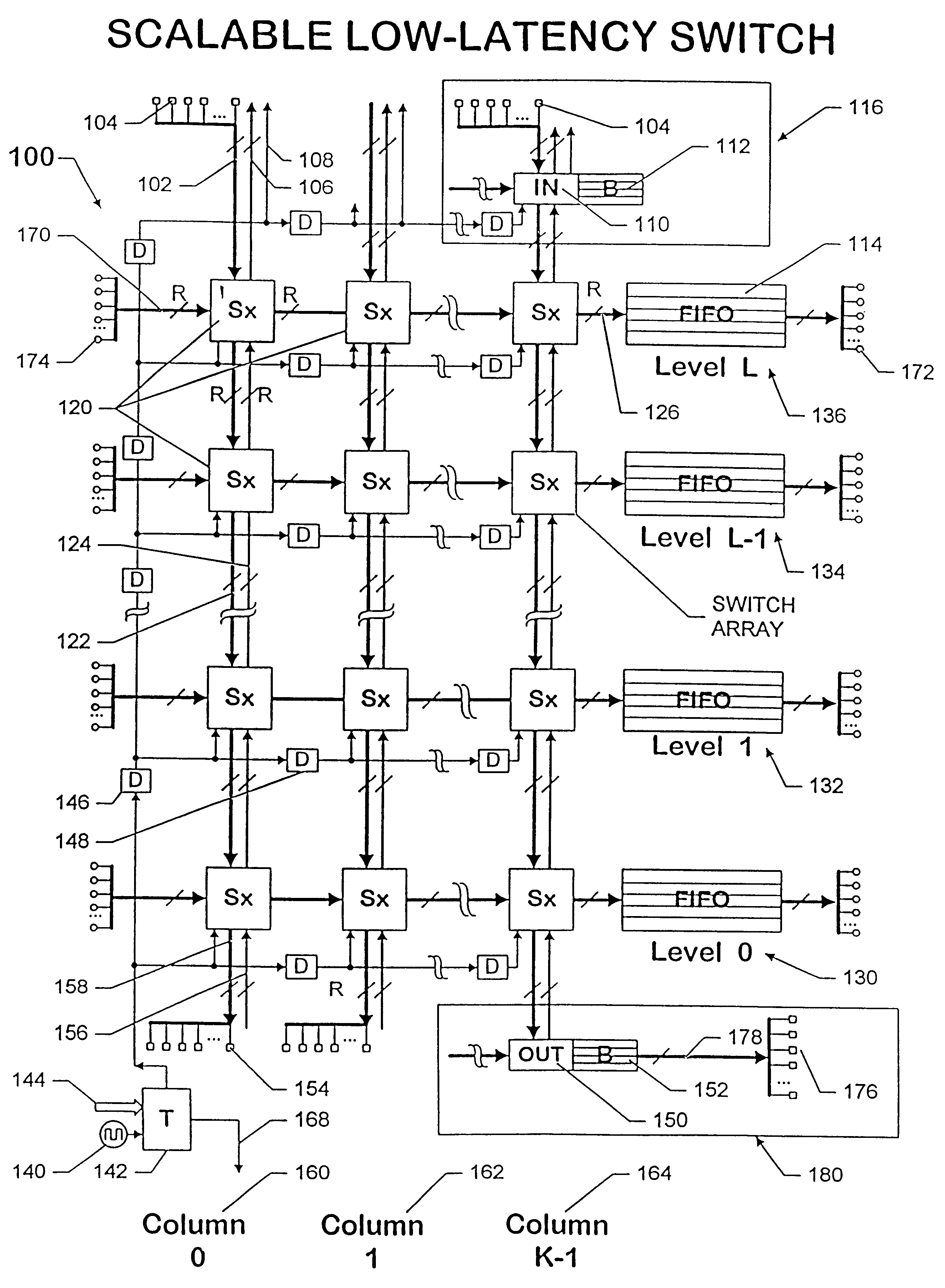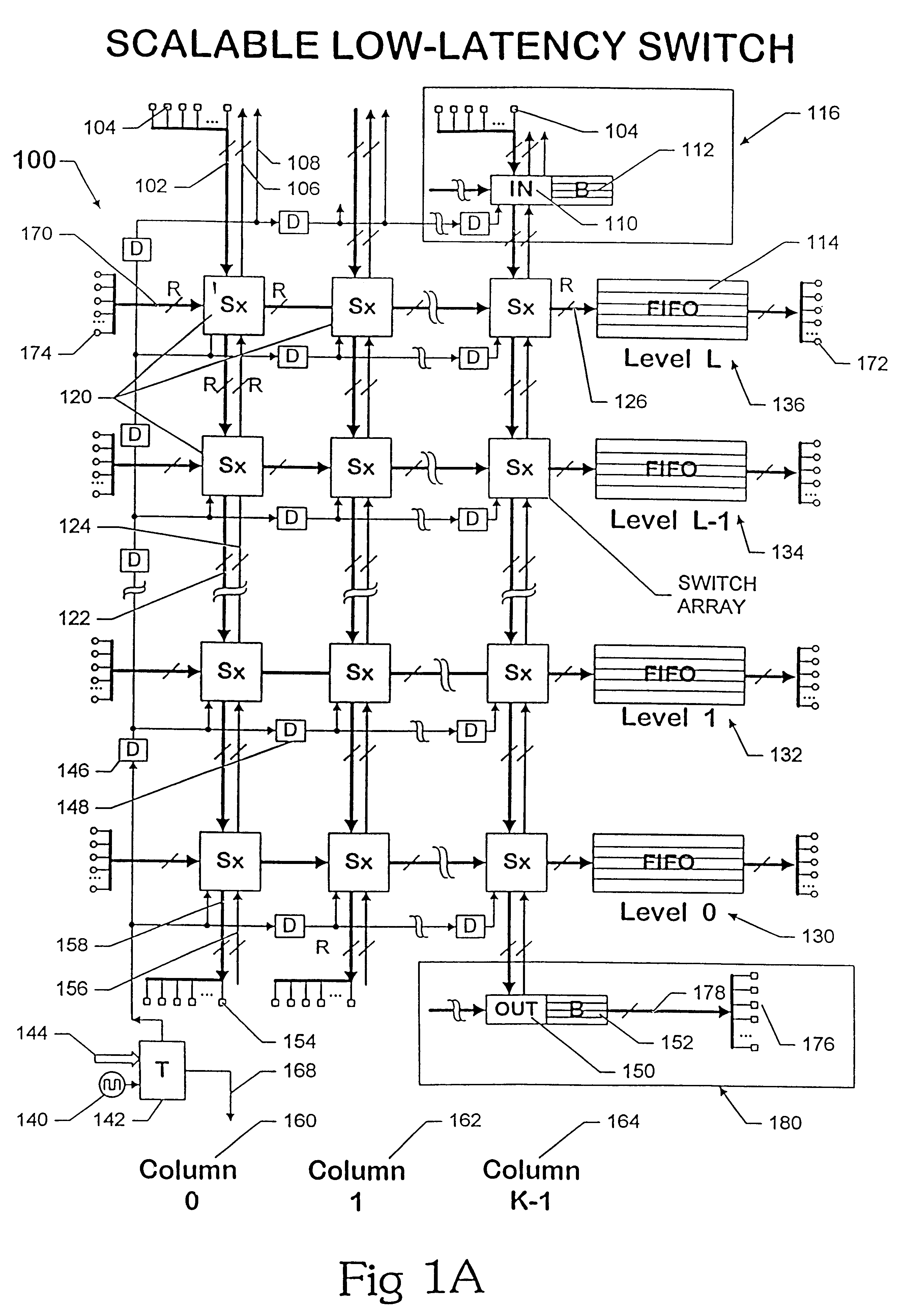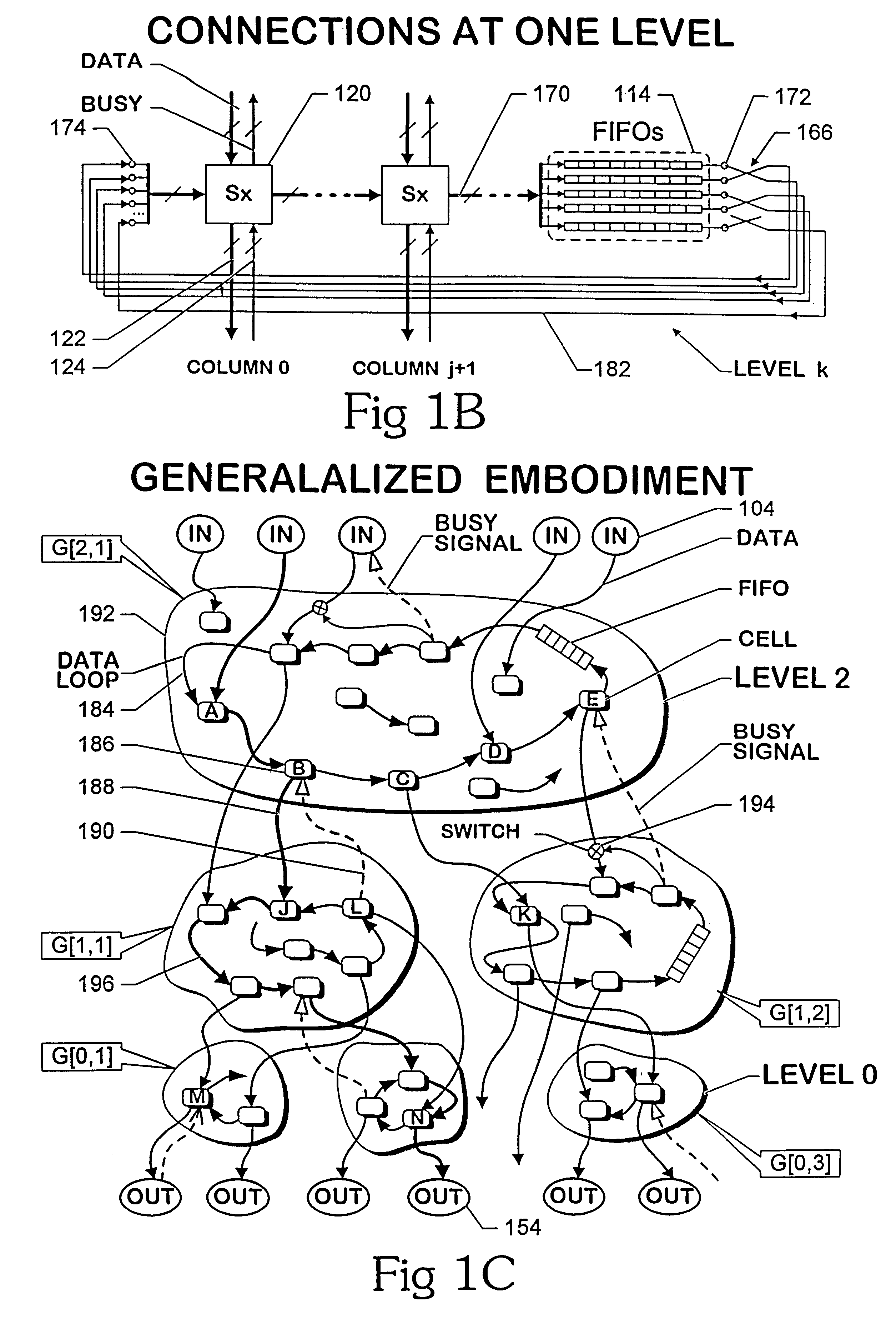Scaleable low-latency switch for usage in an interconnect structure
a low-latency switch and interconnection structure technology, applied in data switching networks, digital transmission, electrical apparatus, etc., can solve the problems of grid failure, low-latency interconnect that cannot be scaled, bandwidth, etc., and achieve the effect of low latency and highest bandwidth
- Summary
- Abstract
- Description
- Claims
- Application Information
AI Technical Summary
Benefits of technology
Problems solved by technology
Method used
Image
Examples
generalized embodiment
FIG. 1C is a general diagram of Switch 100. In this Figure many components such as control cells and interconnections between control cells are omitted for the sake of clarity. (In this figure the terms "left" and "right" refer to an input path and an output path, respectively, connected to cells at the same level.) Control cells 186 are members of one or more groups of cells at the same level. A group 192 contains one or more data loops 184. In FIG. 1C the top level includes a single group G[2,1] 192, where the first parameter (2) indicates the level and the second parameter (1) indicates a specific group at that level. Cell B 186, within group G[1,1], is connected to other cells that, taken together, form a continuous data loop 184. Data in the form of a message circulating through loop 184 moves through cells A, B, C, D, E, and beyond. In some embodiments where the message length is long, a FIFO is included in data loop 184. A message circulating in a data loop has opportunities ...
PUM
 Login to View More
Login to View More Abstract
Description
Claims
Application Information
 Login to View More
Login to View More - R&D
- Intellectual Property
- Life Sciences
- Materials
- Tech Scout
- Unparalleled Data Quality
- Higher Quality Content
- 60% Fewer Hallucinations
Browse by: Latest US Patents, China's latest patents, Technical Efficacy Thesaurus, Application Domain, Technology Topic, Popular Technical Reports.
© 2025 PatSnap. All rights reserved.Legal|Privacy policy|Modern Slavery Act Transparency Statement|Sitemap|About US| Contact US: help@patsnap.com



